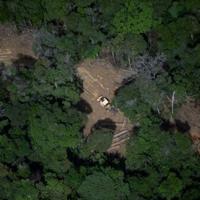The Covid-19 and Ebola outbreaks emphasized the dangers that arise when humans disrupt nature, exposing themselves to animals carrying unknown pathogens.
Experts and activists at the COP16 biodiversity summit in Cali, Colombia are urging world leaders to learn from the millions of lives lost to Covid and Ebola.
Governments must take immediate action as warned by the IPBES on biodiversity, stating that future pandemics could be more devastating than Covid-19 unless changes are made.
Delegates at the UN summit in Cali are working on a plan to address biodiversity and health issues with commitments to limit harmful practices such as intensive agriculture and the use of harmful chemicals.
While the plan is voluntary, parties are struggling with certain details, especially related to intensive agriculture and antimicrobial use.
It is crucial, as stated by WWF, for the relationship with nature to change in order to prevent future epidemics and pandemics.
– ‘When, not if’ –
Zoonotic diseases, like Covid-19 and Ebola, spread through human activities such as deforestation, intensive agriculture, and wildlife trade.
A transformative change is required to address infectious diseases, as highlighted by the IPBES report, which estimated the existence of many undiscovered viruses in mammals and birds.
Expanding protection of natural areas and reducing resource exploitation are recommended measures to prevent the spillover of new diseases.
The COP16 action plan, although voluntary, is seen as a crucial step to prevent future pandemics, given the potential consequences of inaction.
It is feared that without significant changes, another pandemic is inevitable, with the timing being the only question according to the Wildlife Conservation Society.
lab/mlr/bjt





